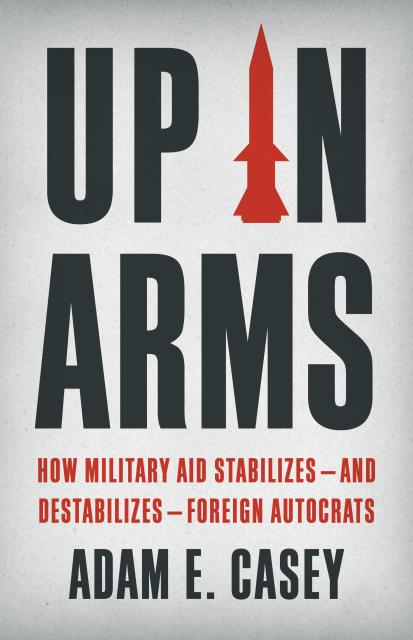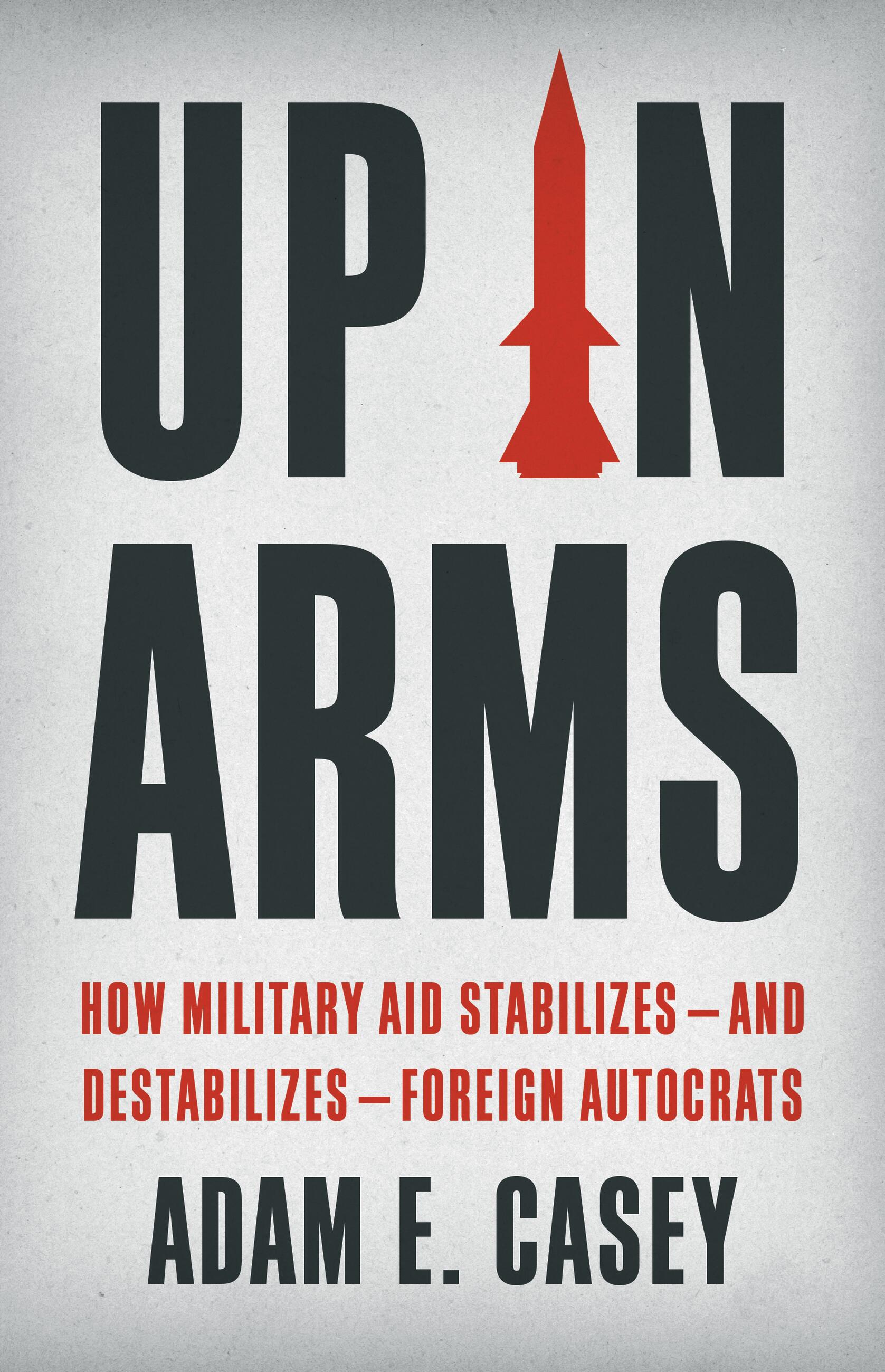By clicking “Accept,” you agree to the use of cookies and similar technologies on your device as set forth in our Cookie Policy and our Privacy Policy. Please note that certain cookies are essential for this website to function properly and do not require user consent to be deployed.
Up in Arms
How Military Aid Stabilizes—and Destabilizes—Foreign Autocrats
Contributors
By Adam E Casey
Formats and Prices
Price
$32.00Price
$41.00 CADFormat
Format:
- Hardcover $32.00 $41.00 CAD
- ebook $18.99 $24.99 CAD
Also available from:
An “extraordinary…must-read” (Steven Levitsky, New York Times–bestselling coauthor of How Democracies Die) look at how support from foreign superpowers propped up—and pulled down—authoritarian regimes during the Cold War, offering lessons for today’s great power competition
Throughout the Cold War, the United States and Soviet Union competed to prop up friendly dictatorships abroad. Today, it is commonly assumed that this military aid enabled the survival of allied autocrats, from Taiwan’s Chiang Kai-shek to Ethiopia’s Mengistu Haile Mariam.
In Up in Arms, political scientist Adam E. Casey rebuts the received wisdom: aid to autocracies often backfired during the Cold War. Casey draws on extensive original research to show that, despite billions poured into friendly regimes, US-backed dictators lasted in power no longer than those without outside help. In fact, American aid often unintentionally destabilized autocratic regimes. The United States encouraged foreign regimes to establish strong, independent armies like its own, but those armies often went on to lead coups themselves. By contrast, the Soviets promoted the subordination of the army to the ruling regime, neutralizing the threat of military takeover. Ultimately, Casey concludes, it is subservient militaries—not outside aid—that help autocrats maintain power.
In an era of renewed great power competition, Up in Arms offers invaluable insights into the unforeseen consequences of overseas meddling, revealing how military aid can help pull down dictators as often as it props them up.
Throughout the Cold War, the United States and Soviet Union competed to prop up friendly dictatorships abroad. Today, it is commonly assumed that this military aid enabled the survival of allied autocrats, from Taiwan’s Chiang Kai-shek to Ethiopia’s Mengistu Haile Mariam.
In Up in Arms, political scientist Adam E. Casey rebuts the received wisdom: aid to autocracies often backfired during the Cold War. Casey draws on extensive original research to show that, despite billions poured into friendly regimes, US-backed dictators lasted in power no longer than those without outside help. In fact, American aid often unintentionally destabilized autocratic regimes. The United States encouraged foreign regimes to establish strong, independent armies like its own, but those armies often went on to lead coups themselves. By contrast, the Soviets promoted the subordination of the army to the ruling regime, neutralizing the threat of military takeover. Ultimately, Casey concludes, it is subservient militaries—not outside aid—that help autocrats maintain power.
In an era of renewed great power competition, Up in Arms offers invaluable insights into the unforeseen consequences of overseas meddling, revealing how military aid can help pull down dictators as often as it props them up.
-
"Well written and clearly the product of prodigious research. ...The leaders of the great powers could start eyeing Cold War-inspired playbooks like Casey’s, with dire results for everyone caught in between."New York Times
-
"A methodical study that largely avoids moral posturing, especially about U.S. policies and decisions. That alone justifies taking it seriously... Up in Arms is apposite to the moment."Wall Street Journal
-
“An original and compelling analysis.”Foreign Affairs
- On Sale
- Apr 2, 2024
- Page Count
- 336 pages
- Publisher
- Basic Books
- ISBN-13
- 9781541604018
Newsletter Signup
By clicking ‘Sign Up,’ I acknowledge that I have read and agree to Hachette Book Group’s Privacy Policy and Terms of Use







